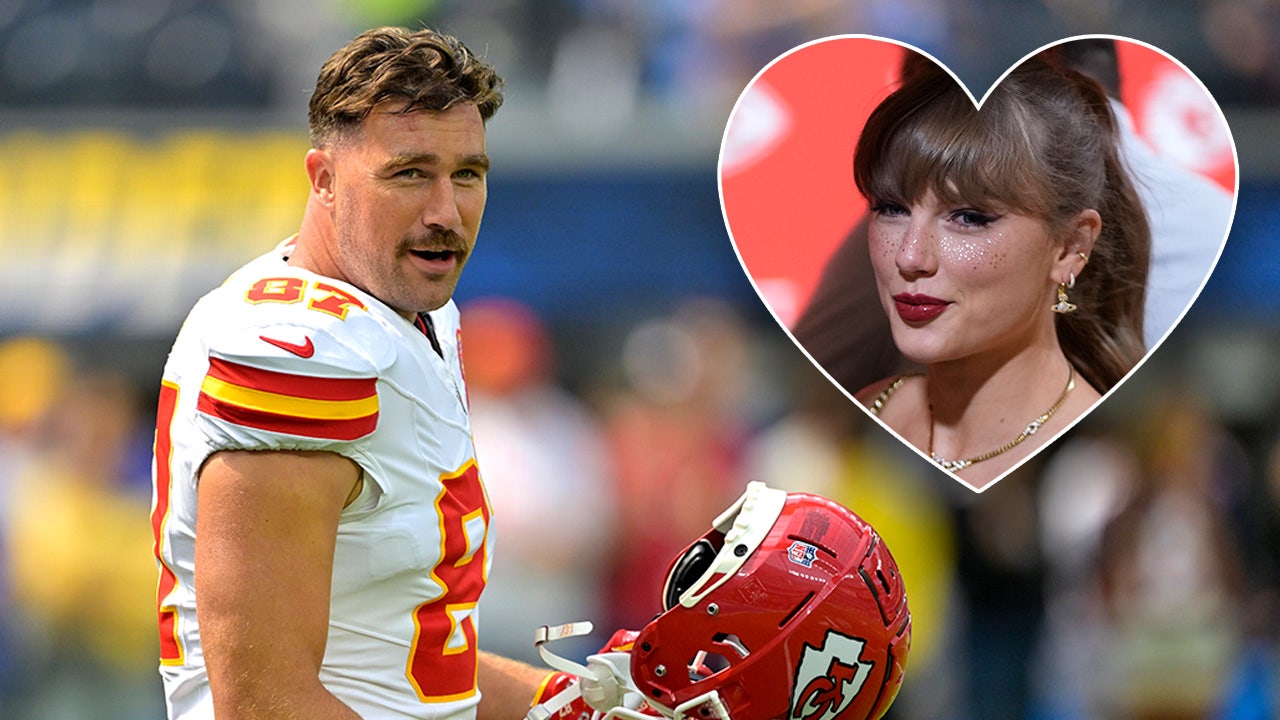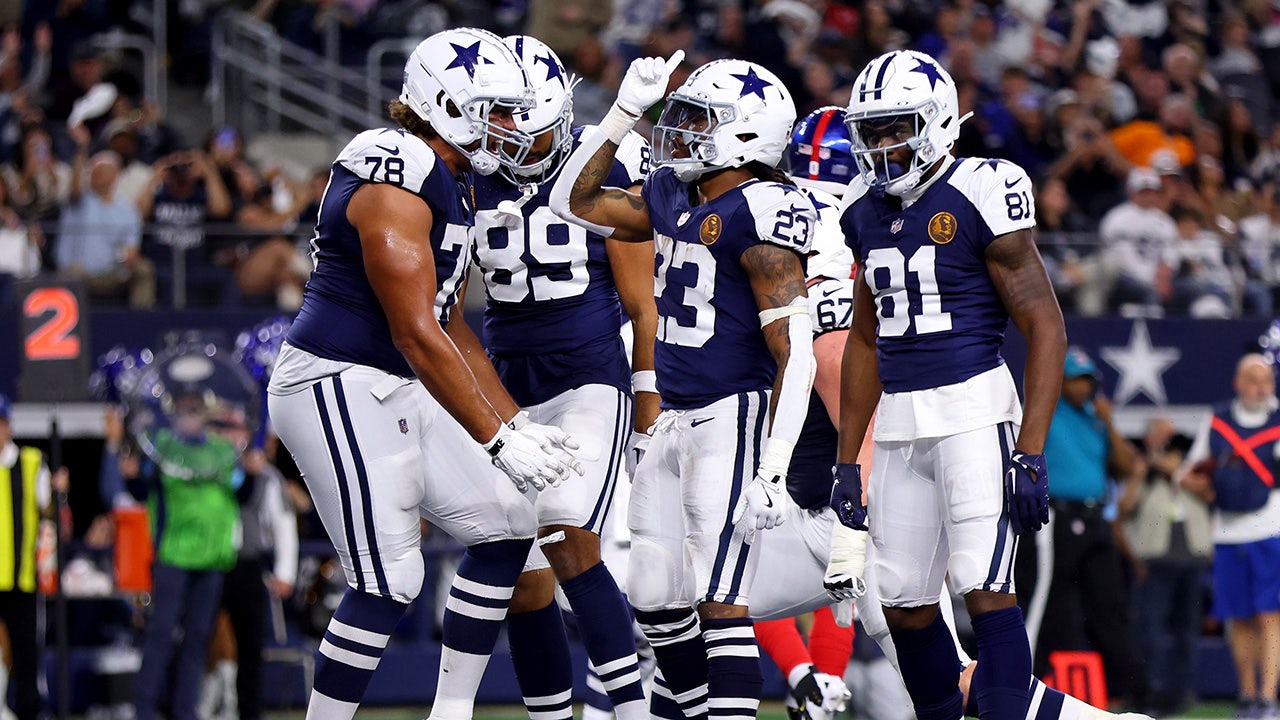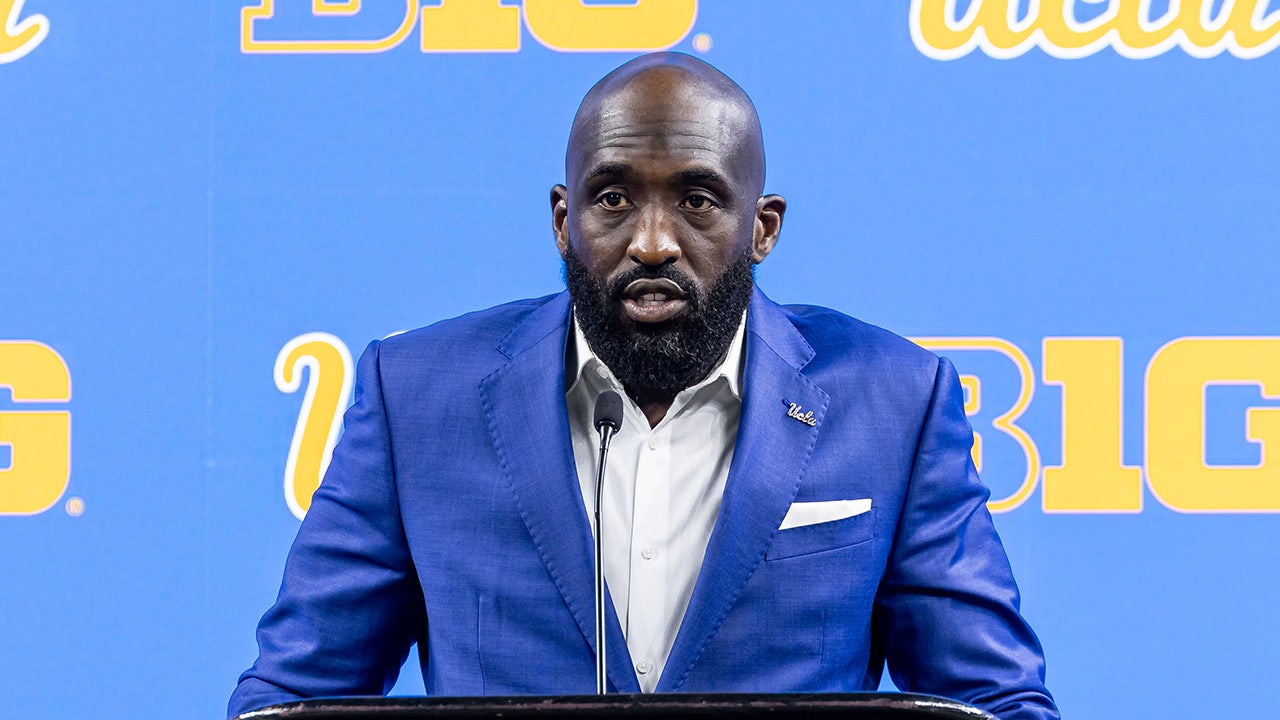Keith Fletcher will never forget the moment he saw a six-year-old Cole Palmer with a ball at his feet and realised, very quickly, he might be watching something special.
It was a Saturday morning on the pitches where NJ Wythenshawe used to play in Manchester, and the boy in question was wearing an oversized shirt in the same shade of blue that he now wears for Chelsea.
“You could see he had something more than the other boys,” recalls Fletcher, a long-time scout for Manchester City. “He stood out as the best player in the team. His control, his willingness to get on the ball and take people on. I look at him all these years later and it’s unbelievable to see what he has done. He’s a superstar, isn’t he?”
This is the first time Fletcher has talked publicly about his part in Palmer’s story, the player’s graduation through City’s academy system, then the transfer to Chelsea last summer, full England recognition and the personal glory of being named as the Professional Footballers’ Association’s Young Player of the Year.
“I’m so pleased for the young fella,” says Fletcher. “It’s like watching one of the old Brazilians. His confidence, the way he plays, his tricks. He’s just gone from strength to strength.”
Fletcher, 78, has been a talent spotter for City for a quarter of a century, devoting endless hours to standing on various touchlines in the often forlorn hope that he might see the next big thing.

Keith Fletcher, the scout who discovered Cole Palmer (Courtesy of Keith Fletcher)
Most of those occasions can feel like wasted trips. But the best scouts keep going back because, in their line of work, perseverance is just as important as an eye for talent.
So Fletcher knows from personal experience what Alex Ferguson meant when the former Manchester United manager, recalling the day he discovered the schoolboy Ryan Giggs, wrote in his autobiography that “a gold miner who had searched every part of the river or mountain and then suddenly finds himself staring at a nugget could not feel more exhilaration than I did that day”.
Fletcher can also appreciate the story that Joe Makin, another of City’s talent spotters, tells about seeing the young Phil Foden for the first time.
Foden was playing for a team called Reddish Vulcans in the under-sevens section of the East Manchester Junior Football League. “I remember one of his first coaching sessions,” Makin told The Athletic this year. “One of the dads came over at the end. ‘That new boy with the left foot’, he said, ‘Where has he come from?’ I put my hands together in a praying motion, looked up to the sky and said, ‘Heaven’.”
In Palmer’s case, there was no eureka moment. He came not from heaven but Heald Green, a suburb of Stockport, and his coaches remember he barely said a word. When he scored (which was often) he would just stand still, as though he did not know how to celebrate, or felt too self-conscious to try. The ‘cold Palmer’ celebration came later.
Breaking down Cole Palmer’s astonishing 2023-24 season at Chelsea
Even at that age, however, the youngster had an air of someone for whom football excellence was just the norm.
“At the time I was going out most Saturday mornings to watch the Timperley junior leagues or other local games,” says Fletcher. “We were looking for the best boys out there. Then we’d invite them to a development centre I was overseeing at Woodhouse Park in Wythenshawe.
“We had about 20 to 30 boys and the ones who showed real potential were taken down to the City academy. My work was done at that point. You hand them over to the academy coaches and you just keep your fingers crossed because they are only very young and a lot of the lads fall by the wayside.
“It (the academy) is a massive place and it’s too much for some of the boys. Others, like Cole, thrived on it. Sometimes we had to fight to get lads to City because of United’s success at that particular time. But Cole, despite being a United fan, wanted to go to City and he enjoyed himself.
“I remember Joe saying to me, ‘Cole is doing well, you know’. Others at City were saying the same, ‘He’s one of yours, isn’t he?’. I knew he had potential. But I never thought he would become the player we see today.”
It has been an extraordinary rise since Palmer decided last summer, at 21, that it was time to sever his ties with Pep Guardiola’s City.

Cole Palmer cut ties with Pep Guardiola and City last summer (Lindsey Parnaby/AFP via Getty Images)
Does Guardiola, on reflection, regret losing such a rare talent? No other player in the Premier League could top Palmer’s combined total of 33 goals and assists last season. He is the first Chelsea player since Eden Hazard in 2014 to win the PFA Young Player of the Year award. And he was a serious challenger to Foden for the main award, too.
But to listen to the stories about Palmer’s childhood is to be reminded that he, like Foden, is just an ordinary boy with an extraordinary talent.
“He’s a top kid who has never forgotten where he comes from,” Tyrhys Dolan, the Blackburn Rovers attacker, tells The Athletic about his former team-mate in City’s junior setup. “Even at the age of six, he had a great understanding of the game. He was a technical player.
“The first thing I noticed was his ability to find pockets of space and receive the ball on the half-turn. He had sharp feet, close ball control, and when he did ‘the chop’ nobody was stopping that chop. He’d take the ball outside, then chop inside, and defenders couldn’t stop him.”
Claire Mulligan, one of Palmer’s former teachers at Gatley primary school, remembers a boy who “played football at every opportunity as well as outside of school”.

Cole Palmer in action for City in an academy game against Liverpool in 2018 (Nick Taylor/Liverpool FC/Liverpool FC via Getty Images)
In his final year at Gatley, another teacher, Jim Prole, a devoted City fan, was among the school party for a residential trip to the Kingswood activity centre. “During downtime, Mr Prole used to play football with the boys,” says Mulligan. “But when Cole came over, Mr Prole used to take a step back. He knew Cole was a whole other level of footballer.”
For context, Palmer was 10 years old, and not every swish of that left foot hit the intended target — the time, for example, in one school game when his shoe flew off and hit a dinner lady on the head. Palmer, it is recalled, often had his shoes unlaced during playground kickabouts.
At the leavers’ presentation, he wore his blazer for St Bede’s, the private school where City used to send their players, and stood up in front of everyone to declare that when he grew up he was going to play in the Premier League. His yearbook names La La La by Naughty Boy as his favourite song. For the section “one day I will be…” his answer, unsurprisingly, is a footballer.
“It does show that dreams can come true,” says Mulligan.
For Fletcher, there are two obvious regrets. One is that Gareth Southgate used Palmer only sparingly for England during this summer’s European Championship. Palmer, he says, is “too good to be coming on with only 10 minutes to go”.

Cole Palmer was used sparingly at Euro 2024 (Jonathan Moscrop/Getty Images)
The other is that the player was not wearing City’s shade of blue, rather than Chelsea’s darker hue, when the two sides met at Stamford Bridge last weekend. Fletcher is a long-time City fan and that makes it bittersweet to see Palmer excelling for another club.
“What I really liked about Cole was the time last season when the Chelsea players (Nicolas Jackson and Noni Madueke) were arguing about who would take the penalty,” says Fletcher, recalling their 6-0 win against Everton at Stamford Bridge. “It was a disgrace. Cole let it all go on around him. Then he went up, pushed them away and put the penalty away, as cool as that. It’s not just his feet that are special — his mentality is perfect, too.”
The man speaking here today also helped to nurture the careers of Brentford’s Ben Mee, Everton’s James Tarkowski and Burnley’s Josh Brownhill. All three were recommended by Fletcher to City’s junior setup and, though none made it through that route, they all became professionals, including several years when they all played for the same Burnley team.
“There are times when you switch on the TV and see them playing and you think, ‘Well, I must have done something right’,” says Fletcher.
Nothing, though, gives him more pleasure than the career trajectory of the skinny kid he first saw playing for NJ Wythenshawe on the old Powerleague pitches beside Manchester’s Trafford Centre.
“At first, I used to go around telling everybody: ‘That lad of mine has done well’. In the end, I thought to myself, ‘I better stop doing this’. I’ve probably got on one or two people’s nerves, to be honest!
“But you can’t help it sometimes. My grandsons, for example. My wife will say, ‘Did you know your grandad scouted Cole Palmer?’. I don’t think they fully believe it — ‘you didn’t, did you?’ — so I just say, ‘Well, I had something to do with it’. I’m very proud to be associated with him.”
(Top photo: Peter Byrne/PA Images via Getty Images)






